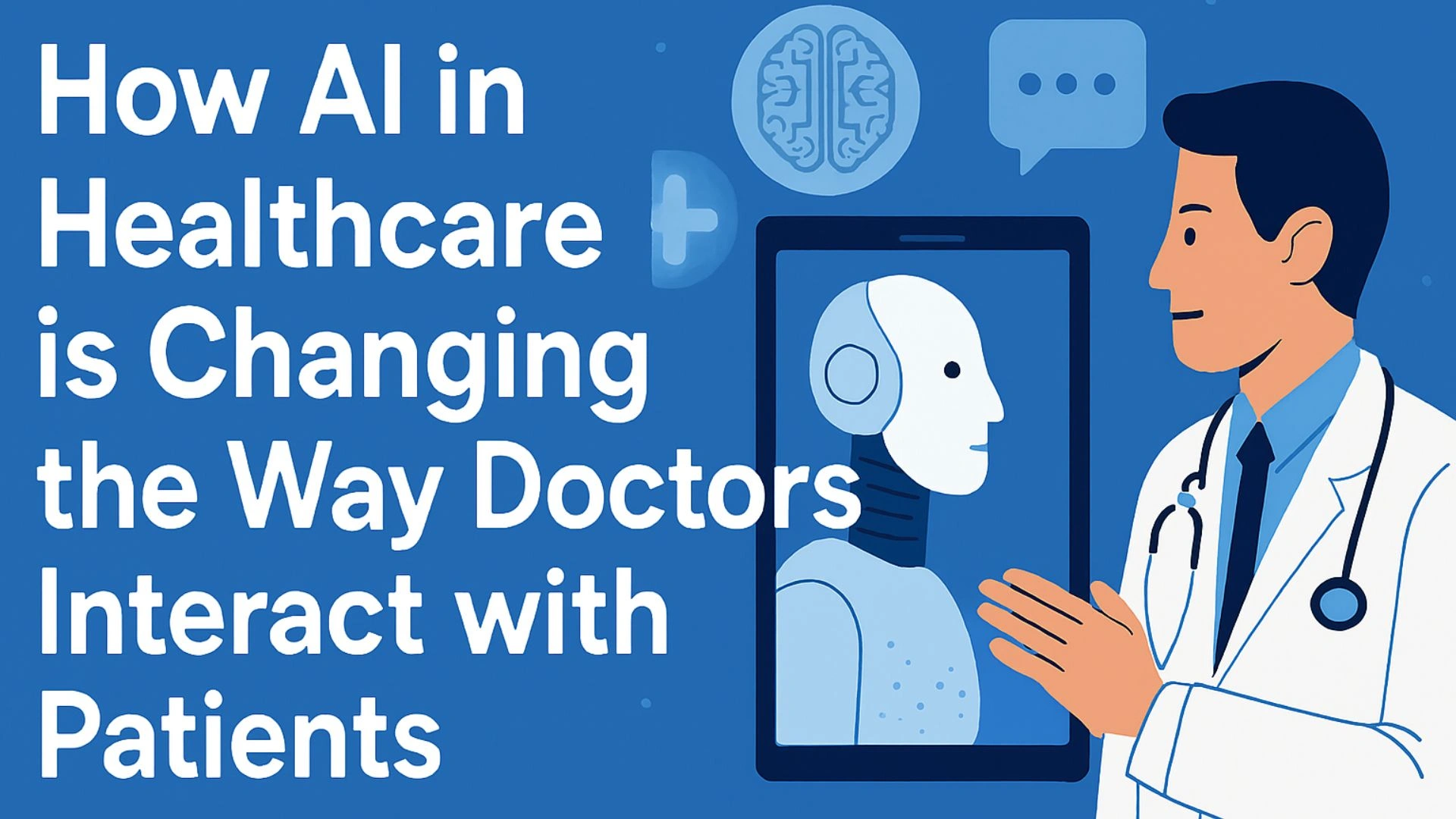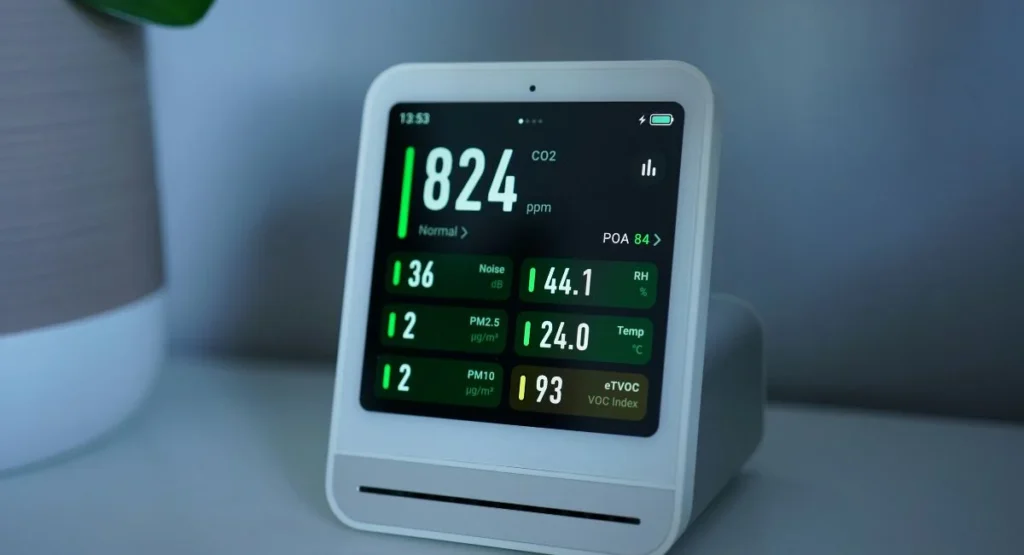Have you ever wondered how artificial intelligence (AI) is transforming the way doctors interact with patients? The healthcare industry, long considered one of the most human-centric fields, is experiencing a revolution. AI in healthcare is not only enhancing diagnostic accuracy but also reshaping the patient-doctor relationship in ways we couldn’t have imagined just a few years ago.
From streamlining administrative tasks to providing more personalized care, AI is becoming an invaluable tool that helps doctors spend more quality time with patients and offer better outcomes. So, how exactly is AI changing the way doctors interact with patients, and why should both healthcare professionals and patients care? Let’s dive in.
How is AI Helping Doctors Make More Accurate Diagnoses?
The first and most important way AI in healthcare is changing doctor-patient interactions is by enhancing the diagnostic process. Imagine visiting your doctor and getting your test results in minutes, with the added benefit that the diagnosis is backed by deep learning algorithms trained on vast amounts of medical data.
AI systems can now process enormous volumes of data from medical imaging, lab results, and patient records to assist doctors in making more accurate diagnoses. For example, AI-powered tools can analyze radiology images to detect early signs of conditions such as cancer or heart disease. These tools often spot things that might be missed by the human eye.
What this means for doctors and patients is a faster, more reliable diagnostic process. With AI helping to identify potential issues early, doctors are able to engage in more meaningful discussions with patients about treatment options. In some cases, AI’s predictive capabilities can even help doctors identify high-risk patients before symptoms appear, enabling preventive care and improved outcomes.
How Does AI in Healthcare Improve Personalized Treatment Plans?
AI isn’t just about diagnosis; it’s also revolutionizing the way treatment plans are developed. Doctors traditionally rely on their experience, knowledge, and clinical guidelines to recommend treatments. While this is effective, AI offers an additional layer of precision.
With AI-powered software, doctors can create personalized treatment plans based on a patient’s unique medical history, genetic data, lifestyle, and even environmental factors. Machine learning algorithms can analyze millions of similar patient cases to suggest the most effective treatment options. This goes beyond just prescribing medication; it includes everything from recommending lifestyle changes to suggesting the best therapy protocols.
For example, in oncology, AI algorithms can recommend the best possible chemotherapy or immunotherapy based on a patient’s genetic profile, increasing the likelihood of success. AI helps doctors tailor their approach to each patient, ensuring that treatments are as effective as possible.
How Does AI Assist in Doctor-Patient Communication?
Communication between doctors and patients is one of the cornerstones of quality care. However, with increasing patient volumes and administrative burdens, doctors often find themselves with limited time to interact meaningfully with each patient. Here’s where AI steps in to improve the doctor-patient communication experience.
AI tools can automate a range of administrative tasks, including scheduling appointments, handling insurance claims, and processing billing. By reducing the time spent on these tasks, AI allows healthcare providers to spend more time with their patients. AI chatbots are now being used to answer routine medical questions, provide reminders for medications, and even collect preliminary information from patients before they meet their doctor. This gives doctors more time to focus on the actual medical concerns of the patient rather than administrative chores.
Additionally, AI-powered telemedicine platforms are making remote consultations more efficient. Through AI, doctors can quickly assess patient data, such as vital signs or medical history, allowing them to provide more targeted advice and interventions. This improves both the quality and efficiency of doctor-patient interactions, especially in underserved areas where access to healthcare professionals is limited.

Can AI Help Doctors Better Manage Their Time?
Time management is a constant challenge in healthcare, especially in busy practices where doctors juggle numerous tasks throughout the day. AI in healthcare can optimize time management by automating routine tasks, enabling doctors to prioritize more critical patient care activities.
AI-driven systems can assist in scheduling by ensuring that appointments are booked efficiently and that patient records are easily accessible. In addition, these systems can track patient progress and automatically remind doctors of follow-up appointments or necessary screenings, reducing the chances of missing important steps in a patient’s care plan.
Furthermore, AI’s predictive analytics can help doctors anticipate patient needs, ensuring they are prepared for appointments. This could be especially useful for patients with chronic conditions, where frequent monitoring is essential. By automating much of the administrative workload, AI helps doctors stay focused on delivering high-quality care rather than getting bogged down with the details of their schedules.
How Does AI in Healthcare Enhance Decision-Making for Doctors?
Decision-making is a crucial part of the doctor-patient interaction. Healthcare providers must navigate complex data, considering multiple variables such as medical history, test results, and treatment outcomes. AI assists doctors by providing data-driven insights that aid in clinical decision-making.
AI algorithms can analyze patient data from various sources and suggest the most likely diagnoses and treatment options. These algorithms use vast databases of clinical knowledge, including research articles and medical journals, to suggest the best course of action based on the patient’s unique condition.
For example, AI can help doctors identify drug interactions or predict how well a patient might respond to a particular treatment based on their genetic makeup. This reduces the risk of errors and ensures that patients receive the best possible care. The result is a more informed, precise, and data-driven decision-making process that improves patient outcomes.
How Does AI Support Ongoing Monitoring and Follow-Up?
Ongoing monitoring and follow-up are key to managing chronic conditions and ensuring that patients stay on track with their treatment plans. With AI, doctors can now monitor their patients’ health continuously, even after they leave the clinic.
Wearable devices and mobile health apps powered by AI can track patients’ vital signs, activity levels, sleep patterns, and more in real-time. These devices can alert both patients and doctors if a health issue arises, enabling timely interventions. For example, AI-driven monitoring tools can notify a cardiologist if a patient’s heart rate becomes irregular, potentially preventing a heart attack before it occurs.
By incorporating AI into continuous care, doctors can maintain a better understanding of their patients’ health between visits. This results in more proactive care and helps prevent the escalation of health issues that could have been managed earlier.
How is AI Redefining the Future of Healthcare?
AI in healthcare is not just enhancing current practices but also shaping the future of medicine. With continued advancements, AI is poised to revolutionize patient care by providing more personalized, accurate, and efficient healthcare experiences.
In the future, AI could be used to predict health conditions even before they manifest, based on patterns in genetics and lifestyle. It could also allow for real-time collaboration between doctors and AI systems during patient visits, ensuring that the best decisions are made at the moment.
Moreover, AI can democratize healthcare by providing high-quality diagnostic support to doctors in remote or underserved areas, reducing the disparities in access to healthcare worldwide.
Conclusion
AI in healthcare is changing the way doctors interact with their patients, enhancing diagnostic accuracy, improving decision-making, and offering more personalized care. With AI-powered tools, doctors are not just becoming more efficient but also offering a higher quality of care that was previously unimaginable. As AI continues to evolve, its role in healthcare will only grow, leading to even better outcomes for patients worldwide.
By embracing AI, the healthcare industry is taking a significant step forward in its mission to provide more accessible, efficient, and personalized care for all. Whether you’re a doctor looking to streamline your practice or a patient hoping for better outcomes, AI is here to make a difference.
FAQs on AI in Healthcare
Q1: How does AI help doctors make faster decisions?
AI analyzes large amounts of patient data quickly and identifies patterns that help doctors make faster, more informed decisions. With AI handling some of the data analysis, doctors can focus on interpreting the results and making the best decisions for patient care.
Q2: Is AI replacing doctors in healthcare?
No, AI is not replacing doctors. Instead, it serves as a tool that enhances the ability of doctors to diagnose, treat, and manage patients more effectively. AI handles tasks that are time-consuming and repetitive, allowing doctors to focus on critical aspects of patient care.
Q3: Can AI handle patient data securely?
Yes, AI systems are designed to comply with strict regulations, such as HIPAA in the U.S., ensuring that patient data is stored and processed securely. AI can also help detect data breaches, improving overall security and privacy.
Q4: How does AI improve telemedicine consultations?
AI enhances telemedicine by analyzing patient data before consultations, providing doctors with insights that improve decision-making. AI-driven chatbots can also assist in pre-consultation processes, gathering patient information to ensure the doctor is fully prepared for the meeting.
Q5: Will AI lead to less human interaction between doctors and patients?
While AI enhances efficiency, it is not designed to replace human interaction. It enables doctors to focus more on meaningful interactions by taking over administrative tasks and data analysis, ensuring that patients receive the attention they deserve.



